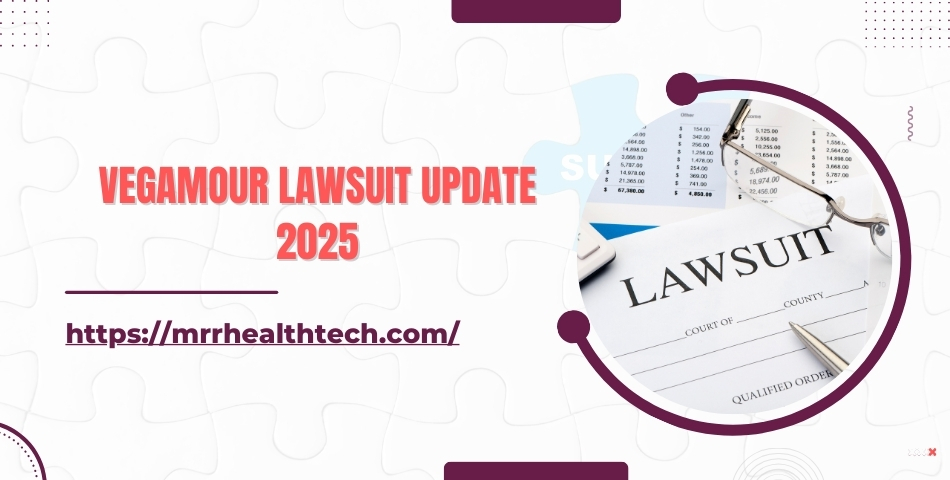
Introduction
In the past few years, global beauty culture has switched to a focus on plant-based and vegan brands like Vegamour, who are known for their cruelty-free hair and skincare. But this sudden rise to prominence hasn’t come easy either. Vegamour has been the subject of numerous lawsuits claiming false advertising and misleading claims about their products. This paper is intended to provide an update on Vegamour lawsuits in the year 2025 with respect to the legal aspects of the cases, reactions from consumers, and the overall changes in the beauty world.
Background of Vegamour
Founded in 2016 by Daniel Hodgdon, Vegamour has quickly established itself as a leader in the natural beauty market. The brand offers a range of products designed to promote hair and scalp health, including:
- GRO Hair Serum: A hair serum that is topical and seeks to help with the growth of hair.
- GRO Ageless Anti-Gray Hair Serum: For people that have issues with graying hair the solution is found here.
- GRO Lash and Brow Serum: This compound looks to assist with enhancement of both lashes and brows.
- HYDR-8 Shampoo and Conditioner: Hydro a range of products that intends to provide nourishment to the hair and skin.
Vegamour claims to utilize “bioavailable” plant-based ingredients to deliver effective results, appealing to consumers seeking natural alternatives to traditional beauty products.
Overview of the Lawsuits
Vegamour has faced several lawsuits, primarily centered around allegations of false advertising and misleading marketing practices. The most notable cases include:
- False Claim Advertisement: Consumers lodged a complaint asserting that the marketing materials of Vegamour claim their products have better results than what they can actually deliver.
- Accessibility Problems: Barbara Blejewski a blind woman sued Vegamour arguing the company’s website is not friendly for people with visual impairment, thus violating Americans with Disabilities Act (ADA).
- Problems with Subscription Model: Vegamour subscription service has irked a number of customers which resulted in involuntary enrollment and other related issues.
Key Legal Issues
False Advertising and Misleading Claims
The core of the lawsuits against Vegamour revolves around allegations that the company has made misleading claims about the efficacy of its products. Key points include:
- Lack of Proof: Hair loss and its claims of success however do not have adequate number of to support the absence of pumps as evidence as clinical researches.
- Consumer Types: Numerous reports from consumers indicate the desired and expected end results fail to achieve the expectation thus resulting on their feedback conversion to either complaints or negative endorsements.
Accessibility Compliance
The lawsuit filed by Barbara Blejewski highlights the importance of accessibility in digital spaces. Key issues include:
- ADA Violations: The claim asserts that Vegamour’s website does not comply with ADA standards, making it difficult for visually impaired users to navigate and access information.
- Potential Legal Ramifications: If the court finds Vegamour in violation of the ADA, the company may face significant penalties and be required to implement changes to its website.
Subscription Service Challenges
Vegamour’s subscription model has also come under scrutiny:
- Forced Enrollment: There have been complaints from clients about being subscribed to the services without them giving a permission for such action.
- Problems of Customer Care: Clients have stated that they are not satisfied with the resolution of these subscription problems by the customer care team of Vegamour.
Consumer Reactions and Reviews
Consumer feedback on Vegamour products has been mixed, reflecting a wide range of experiences:
Positive Feedback
- Positives: It is the reverse for others who seem to enjoy the satisfaction of the results more and many seemed to have their hair relapsing.
- An Active Brand Texture: It is also clear, consumers are very happy to have the company make use of plant-derived and cruelty free raw materials.
Negative Feedback
- Limitations: Numerous individuals who purchased such products have expressed feelings of bitterness and disappointment in those products for not delivering what they claimed to.
- Side Effects: Some users experienced some adverse events such as thinning of hair and hair dampness.
Social Media Sentiment
Platforms like Reddit and Instagram have become battlegrounds for consumer opinions, with discussions highlighting both positive and negative experiences. The polarized nature of these reviews can impact potential customers’ perceptions of the brand.
The Role of Medical Records Review in Legal Cases
In the context of the Vegamour lawsuits, medical records review plays a crucial role in substantiating claims and defenses. Here’s how it can be beneficial:
Evidence Gathers
• Documenting Claims: Medical notes could help in determining the exposure of customers to any reactions that might determine whether liability should attach.
• Expert Testimony: For any adverse effects noted, medical experts can go through records and find out if this was a direct result of using the products in question as reported.
Supporting Legal Arguments
• Establishing Causation: A focused interpretation of medical history can be useful to the case in proving that there is association between the adverse effects realized by users of Vegamour products and the use of the products.
• Defending Against Claims: Whenever a consumer has in the past suffered from a specific ailment as noted in their medical case, one can use this to repulse claims that the product could cause negative effects or even be ineffective.
Increasing Adherence to Regulations
• Regulatory Adherence: Providing substance marketing documents with facts, scientific proof, and consumer health data can be a legal standard for Vegamour and help prevent potential court cases in the future.
Case Studies
Case Study 1: Overview of the Case
- Background: A plaintiff initiated a case against Vegamour, claiming that GRO Hair Serum caused thinning of their hair after reaching out for over-the-counter solutions for Hair Loss.
- Challenges: The plaintiff argued that due to the advertising of the product, they were made to believe that the product was both harmless and effective.
- Solutions: It was necessary to evaluate the potential impact of the plaintiff’s medical history on hair loss, and such a review was done through an examination of medical records.
- Compensation: The case was vacated due to the available evidence which showed that the product in question was not the sole reason for ‘the plaintiff’s condition’.
Case Study 2: Overview of the Case
- Background: There was a class-action suit filed by several complainants charging the company Vegamour for fraud through subscription services.
- Challenges: The complainants were able to prove NCD (no-consent defendants’) on terms of the subscription.
- Solutions: Documents of customer service together with ccommunication logs were read and found that there were anomalies on the presentation of terms of subscription.
- Compensation: Vegamour has settled the matter by deciding to reimburse customers and also amending their subscription model to make it clearer.
Conclusion
Once again, the Vegamour lawsuits open up major issues within the beauty industry in general and more specifically consumer and product effectiveness. While the brand is seeking to resolve these legal issues, it must not be forgotten the role of transparency, science-based marketing and level of the consumer in this mix. This is fundamental for lawyers and other legal actors when trying to strengthen their arguments around medical records review in such cases. As the company Vegamour grapples with market changes, it seems reasonable to expect that the insights from these lawsuits will inform its marketing practices and relationships with buyers in the future.













